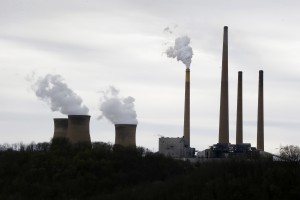Supreme Court agrees to hear arguments over Obama's "war on coal"
The Supreme Court will consider a challenge to the Obama Administration’s new rules on mercury emissions from power plants. Tuesday’s decision by the high court came just a day before the EPA announced new rules to control smog. The mercury rules were first imposed by the Clinton Administration, and then reversed under President Bush. The rules were revived by Obama in 2012. The coal industry has pointed to the limits on mercury, along with other regulations aimed at reducing smog, ozone and other air pollutants as a “war on coal.” Industry, utilities and 21 states, including Pennsylvania, have sued to stop the mercury rules, which will cause some coal burning plants to shut down. The issue is over costs. More from USA Today:
The U.S. Court of Appeals for the D.C. Circuit upheld that action last year, ruling that the government did not have to consider costs until it sets specific emission levels, and that it did not have to decide on each air pollutant separately. The regulation sweeps in other pollutants, such as acid gases, that are not considered as dangerous as mercury.
But that 2-1 ruling came with a dissent from Judge Brett Kavanaugh, who said the EPA should have considered the estimated $9.6 billion annual cost. Industry briefs claim the potential benefit from reduced pollution is roughly half that amount.
“The extraordinary costs of EPA’s rule will be borne by consumers of electricity – i.e. everyone in the nation – causing a significant nationwide economic impact in exchange for relatively little public health benefit,” the states wrote in their appeal. The EPA had estimated that the regulations would raise the average consumer’s monthly electricity bill by $3 to $4.

















